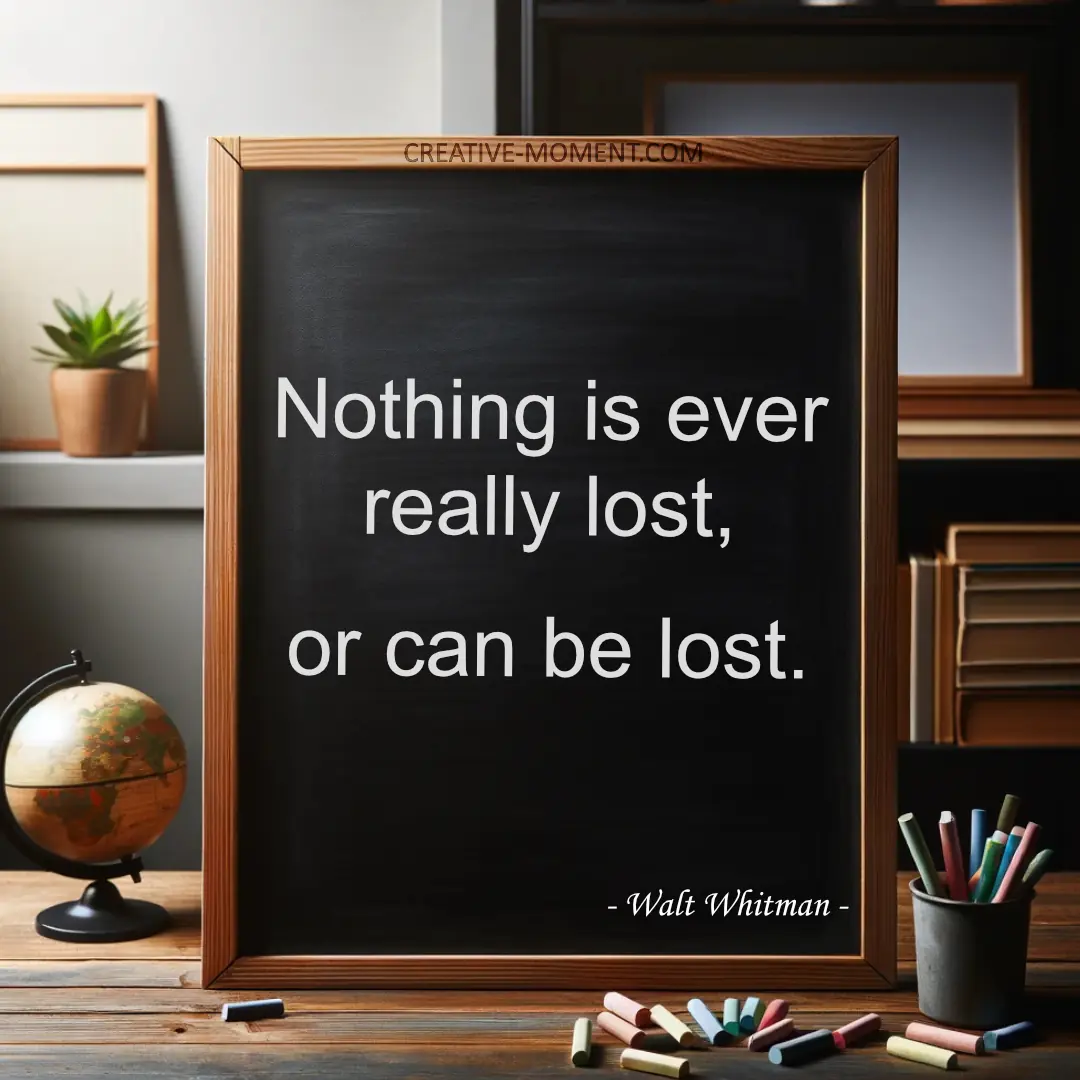Saying: Nothing is ever really lost, or can be lost
Info
- Title: Nothing is ever really lost, or can be lost
- Type: Sayings
- Category: Grief and Comfort
- Print: Download as PDF for printing
The quote "Nothing is ever really lost, or can be lost." is commonly attributed to the American poet Walt Whitman. This deeply philosophical statement underscores the enduring presence of all experiences and memories. It gained recognition through collections, essays, and discussions on transience and continuity in human existence.
Origin and Usage of the Quote
Walt Whitman (1819–1892), author of "Leaves of Grass," is considered the creator of this quote. It originally appears in English within the poem "Continuities," precisely as "Nothing is ever really lost, or can be lost." The quote frequently features in literary anthologies and philosophical texts about cultural memory.
It has often been used in compilations of quotes and essays dealing with transience and continuity. Literary critics and authors discuss it within contexts highlighting the lasting traces of experiences and identities in memory and culture.
Meaning and Interpretation of the Quote
Initially, the statement by Walt Whitman emphasizes the idea that nothing is ever truly lost. Memories, identity, and life impressions retain their value and impact across space and time.
The central message implies the permanence of experiences and memories. Even seemingly past events persist and may resurface or continue influencing in new forms.
The quote also stresses a universal perspective on life and existence. It suggests that neither biological nor psychological elements truly disappear; they remain part of a broader, ongoing context.
Philosophically, the quote conveys that loss is relative. The existence of every moment leaves traces that ensure the continuity of human experience and meaning.
- Persistence of memories through time and change
- Significance of enduring identity and internal continuity
- Establishment of a perspective on continuous existence
- Philosophical focus on enduring perspectives rather than finitude
- Reinforcing awareness of life’s traces in memory and culture

